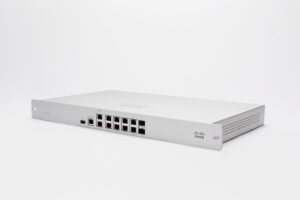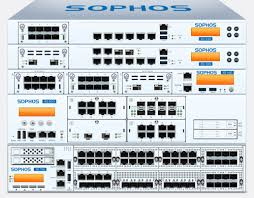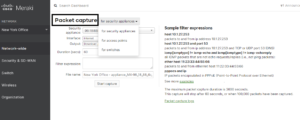
What do I need a firewall for, I’m a small business? That is one of the most common questions we get from small business owners, for some reason they think that only large and financial corporations are in need of implementing a firewall to protect their network so I decided to write this article to address the most common misconceptions small business owners have about cyber security services and how it relates to them.
My first point is to address the big elephant: what is a firewall? In its most basic function, a Firewall is a device that protects your internal network against external cyber-attacks, the level of protection and efficiency of the Firewall depends on many factors including maker, model, licensed security services, configuration, etc. To address the needs and requirements of the SMB sector technical companies such as Sophos, Cisco, SonicWall have “bundled” together with various technical services in one physical box so more common than not having a Firewall device also performs other services such as VPN, WebContent Filter, IPSIDS, ATP, DNS, DHCP, etc. that provide all or most services required for small business in a centralized location.
Now going back to the Firewall topic, do small businesses really need a firewall? The answer is simple, yes. One of the major misconceptions the SMB sector has is that they believe hackers are just a small group of geek looking guys and gals going after fortune 500 companies for financial gain when in actuality cybercriminals are more like an Amazonian piranha-infested pond that devours any pray that falls in it, be large or small. Although small businesses may not have the financial depth that makes the larger corporation a more lucrative target for cybercriminals they are an easier target that can turn into a “quick and easy buck” for them.
Firewalls are only to protect data, right?
That can’t be farther from the truth, I believe it goes back to the misconception of what a firewall does. Actually a firewall “does not protect your data”, it protects the network. Protecting your data involves other functions such as backups, file access permission, etc.
Ok, all my data is in the cloud, I don’t need a firewall?
That is wrong too and let me tell you why, cybercriminals are not just out to delete secrets and hijack data, your resources are very useful too, what resources you may ask.. your network, your CPU power, your browsing habits, etc. Did you know that one of the most common attacks in the cyberworld is a Distributed Denial of Service (DDOS) attack in which a “master” computer controls the “minions” to send traffic or attack a specific target? So even if you have no data to risk your network and computers could very well be compromised into doing illegal activities without your knowledge. We’ve had so many cases where companies bring us over to analyze a slow server network performance just to find out that computer or the servers in the office are being used as bots or to temporarily store movies and to store illegally downloaded movies and files.
My operating system has a firewall, I don’t need a network firewall for my office?
That is incorrect as well, the functions of a host-based firewall are limited compared to a centralized unit. Not only does it makes administration a nightmare as you need to monitor and control the setting on each computer but its services are isolated and dependent on the computer’s administrator to maintain.
Firewalls are way too expensive! my business can’t afford it.
That is not necessarily true, most firewalls for the SMB sector are well within their reach. What makes prices vary is extra security services you may want to add, the length of the security contracts, support type, etc. An average firewall cost for a small business of 25-75 users can be less than $5,000 for a 3-year service. Of course, that price would change from company to company, some companies may require more services while other less but all in all we’re talking about $1,600 a year for a top-of-the-line solution!
I haven’t had a firewall all this time and things are fine, I’ll take my chances.
That’s an interesting argument from many small business owners, I believe it stems from the risk-taking spirit entrepreneurs have. You can’t argue with the fact that perhaps their company has never been affected by cybercriminals but again is it worth risking the company assets for just about $1600 a year? Not only that, a next-generation firewall like the Sophos XG 210 offers amazing built-in utilities such as traffic monitoring and reporting capabilities useful for organizations to help them understand how network resources are utilized (or wasted), which in itself can help increase the bottom line.
From an IT point of there are many reasons why your company should have a firewall installed, of course, my opinion may come across as biased considering I’m a firewall solution provider. Whether you are mom and pop shop or a fast-growing startup with 100% cloud-based resources you need to protect your network from cybercriminals, we help organizations, big and small, decide what the best firewall solution is for their specific environment. We’ll also give you the option of testing the firewall for 30 days for you to find out the threats that are active on your computer or even to find out if your network is compromised.
Contact us to learn more about that special offer by contacting us at 888-580-4450 or [email protected].
Stay safe online!
______________________________________________________________________________________________________________________


